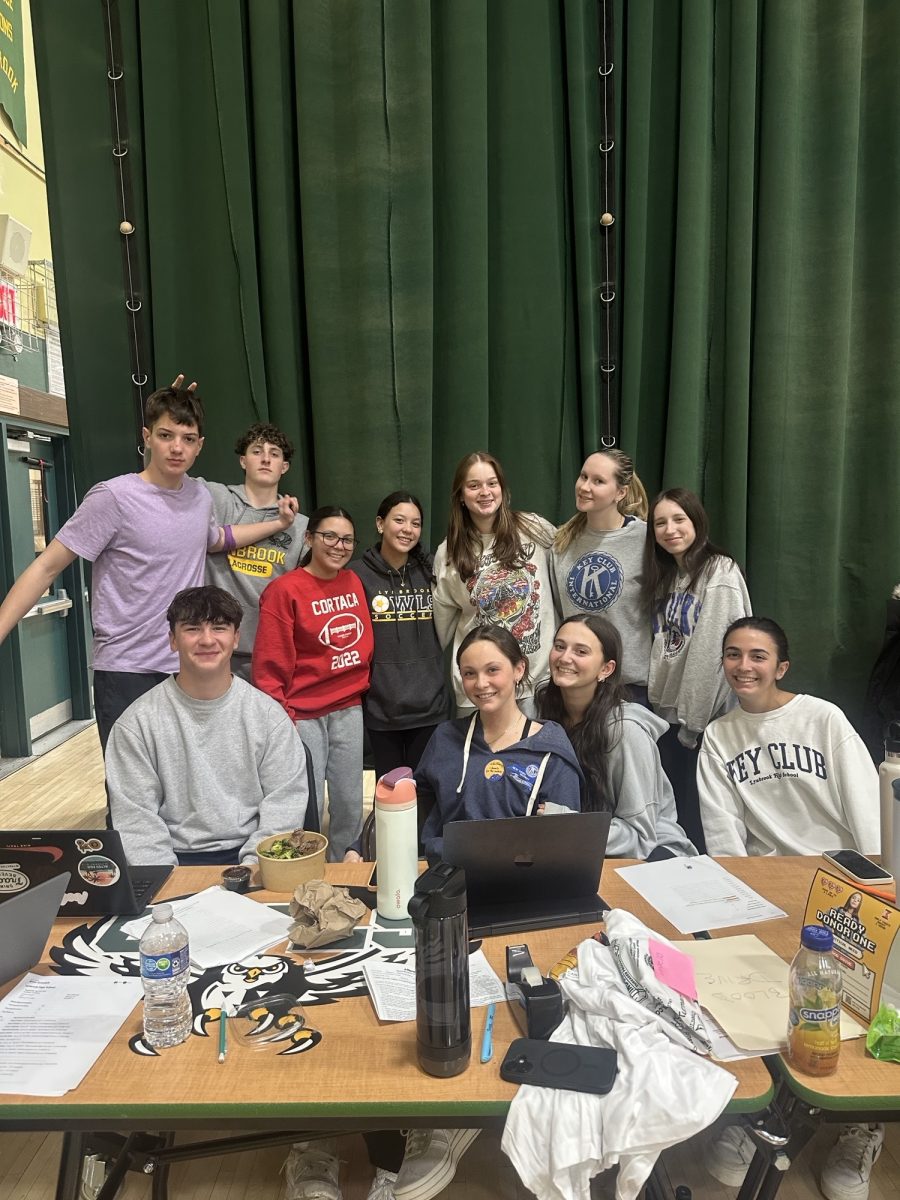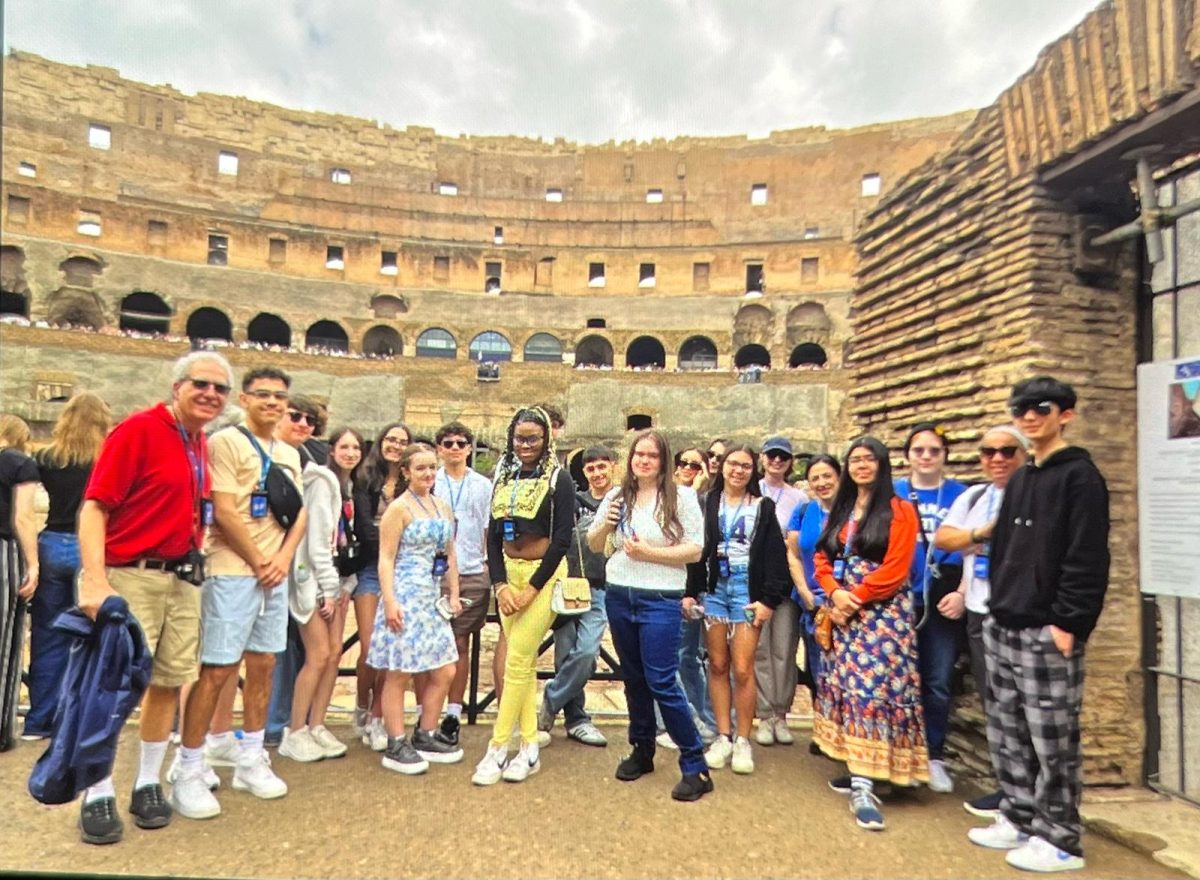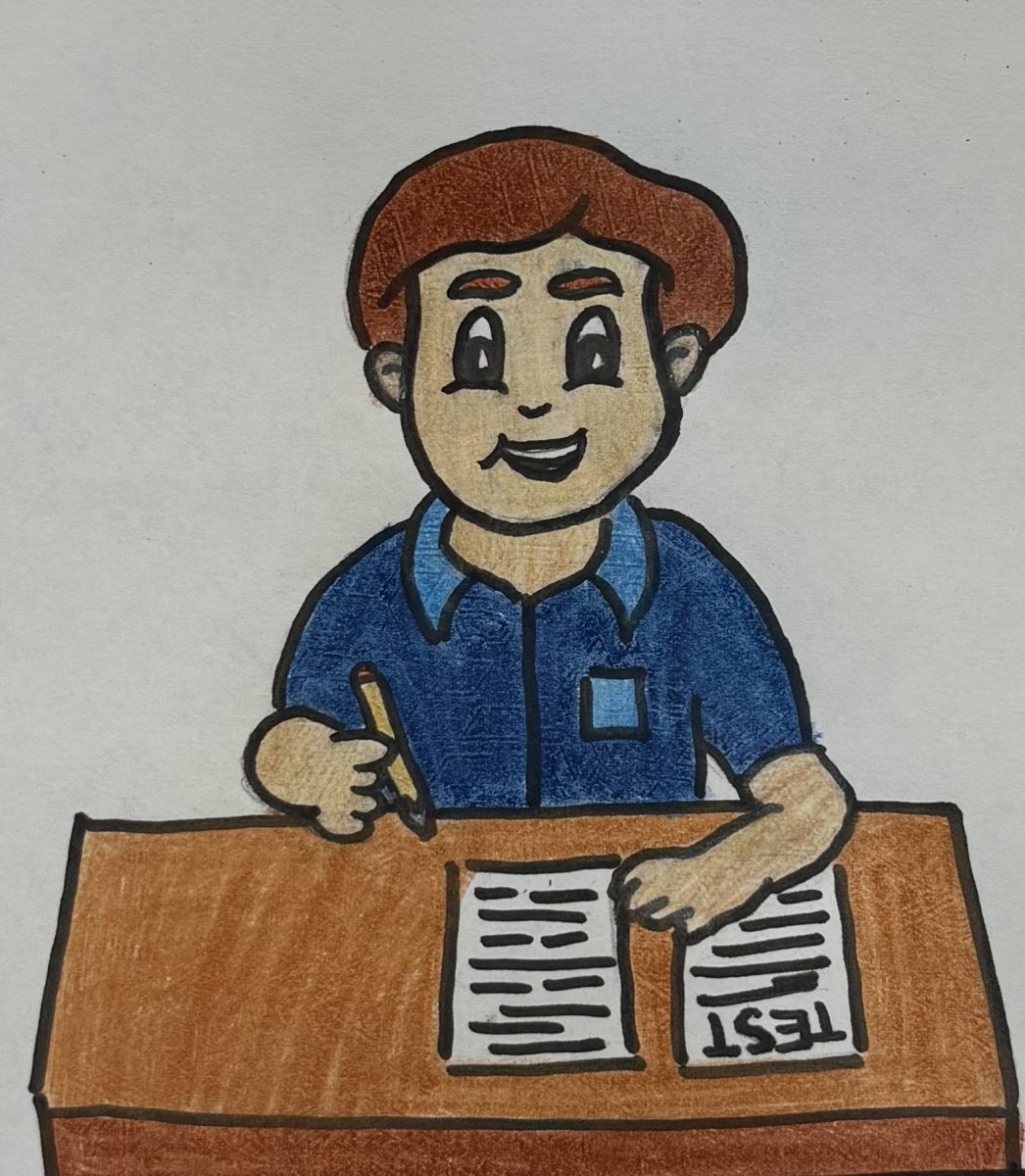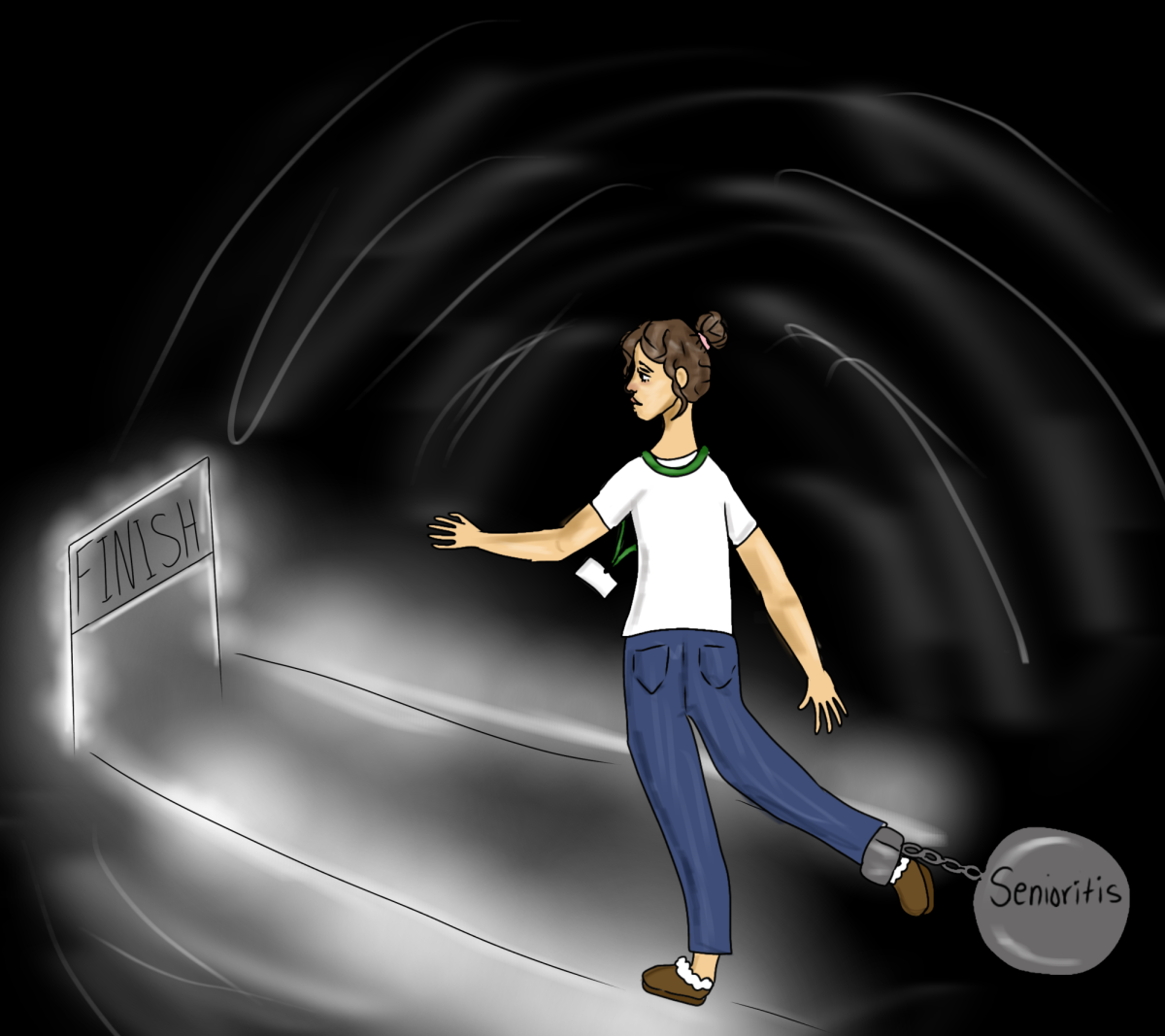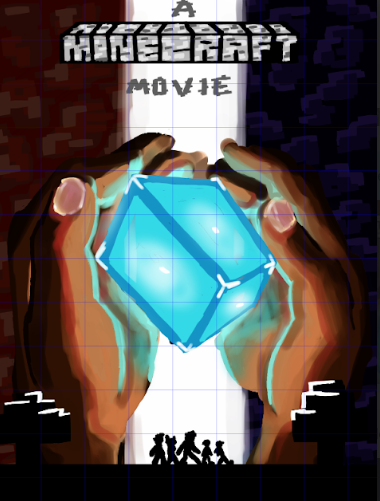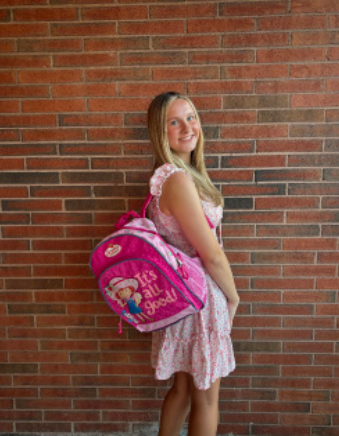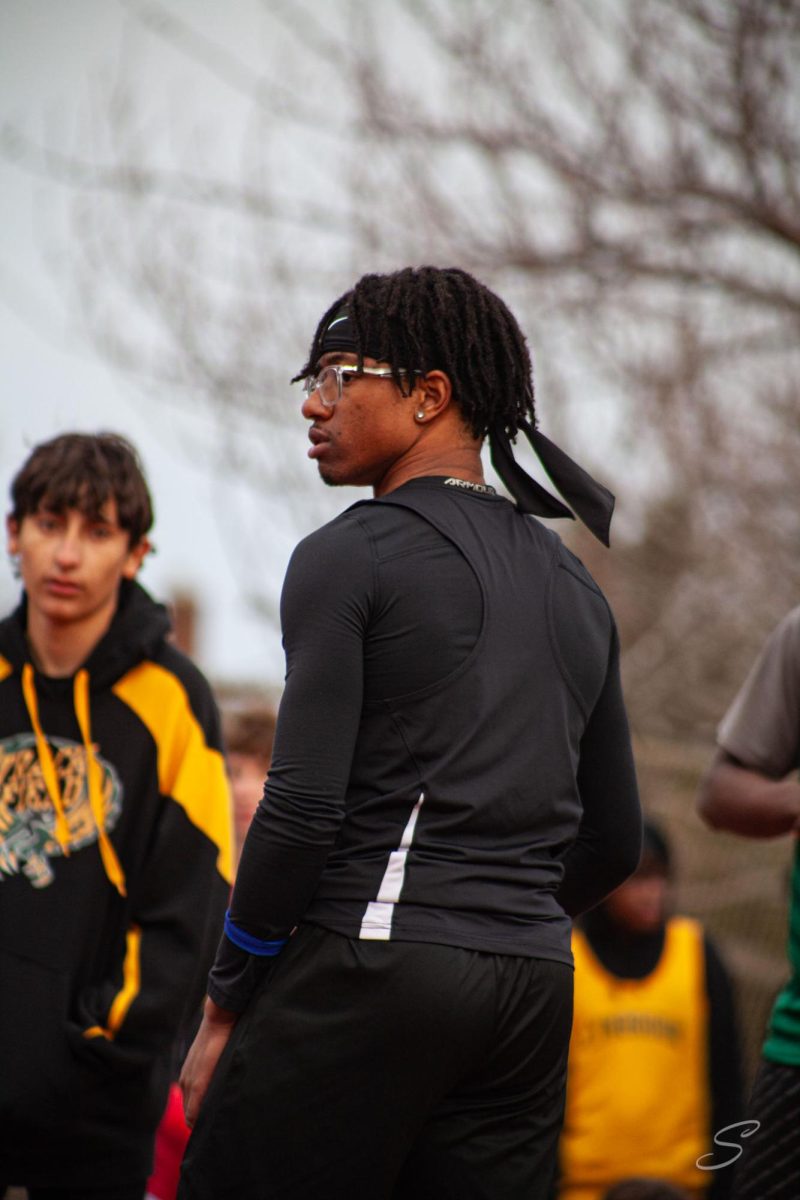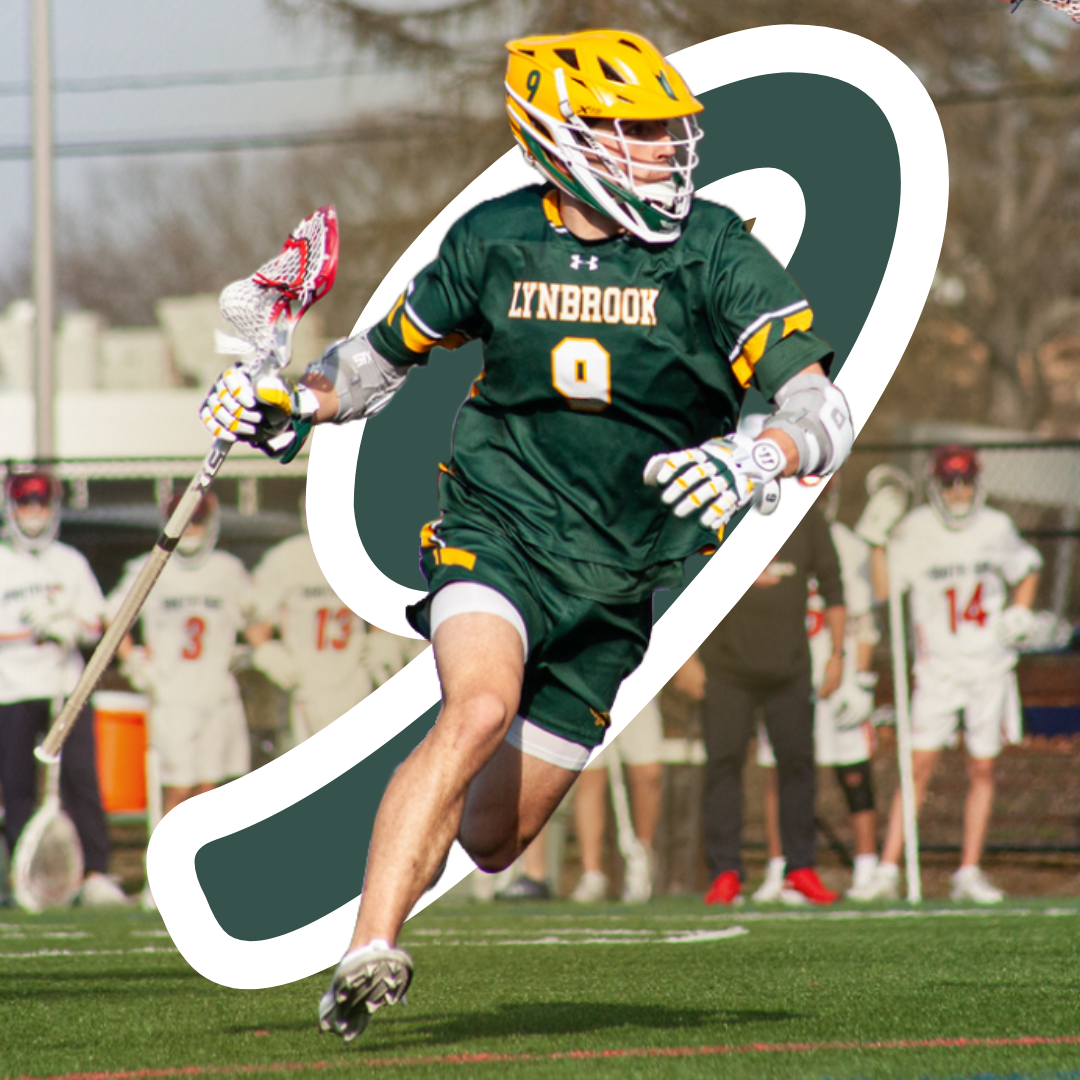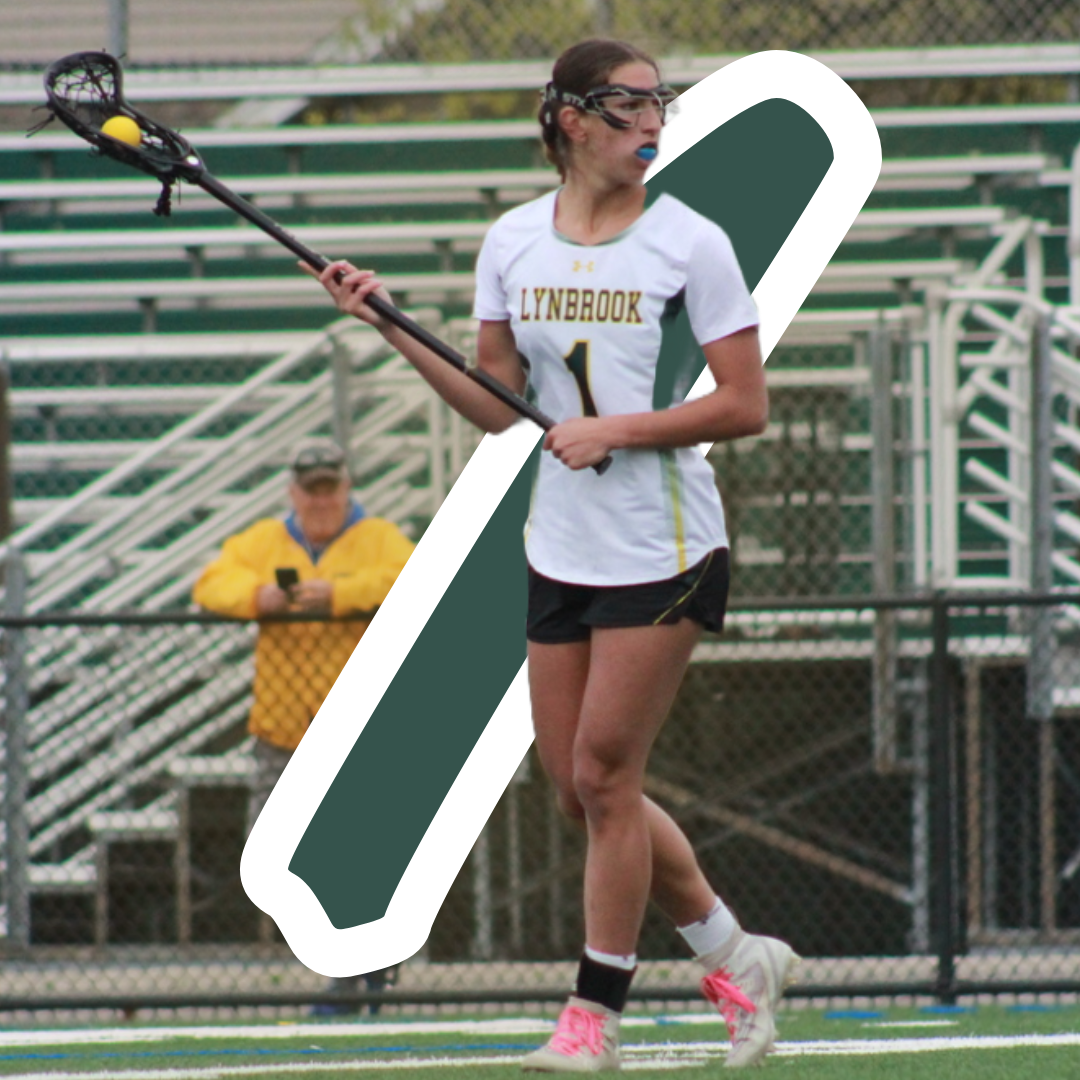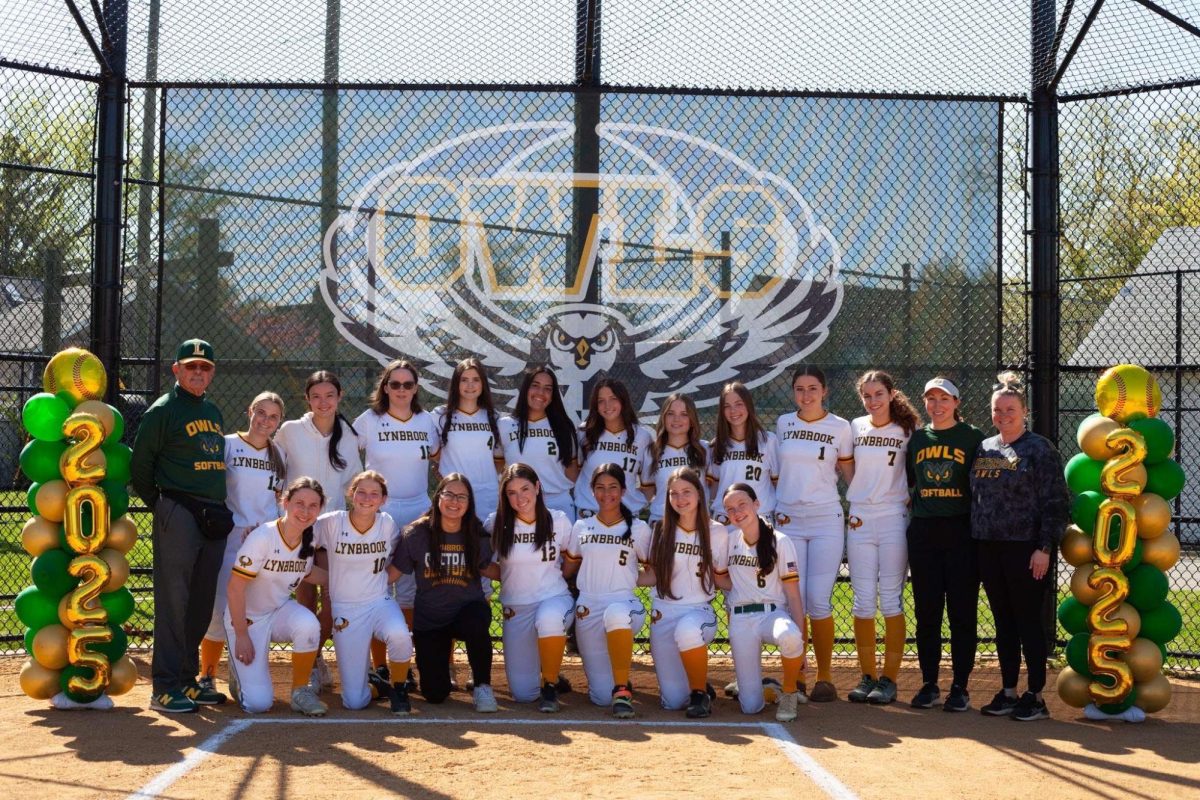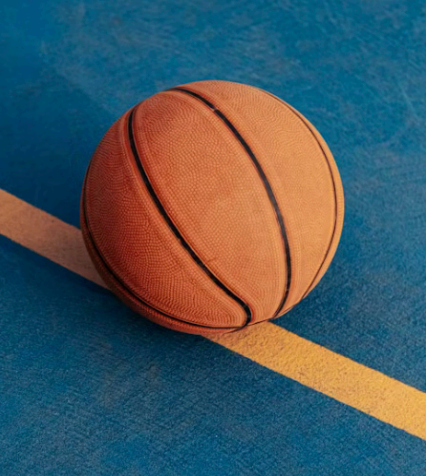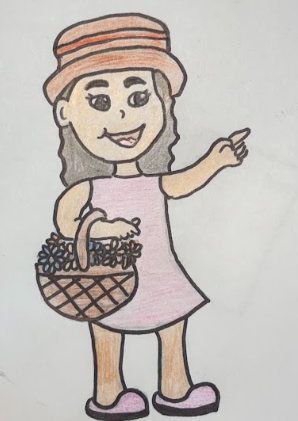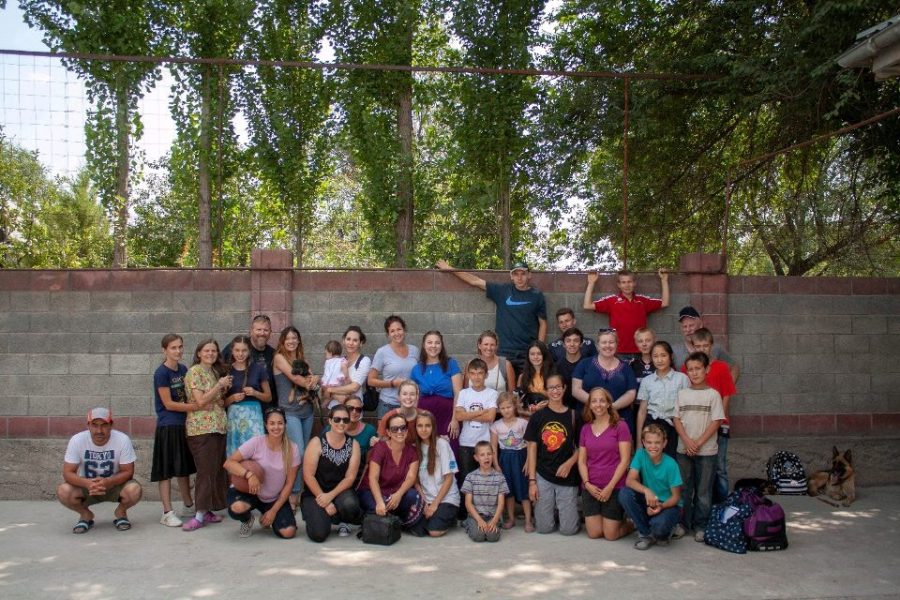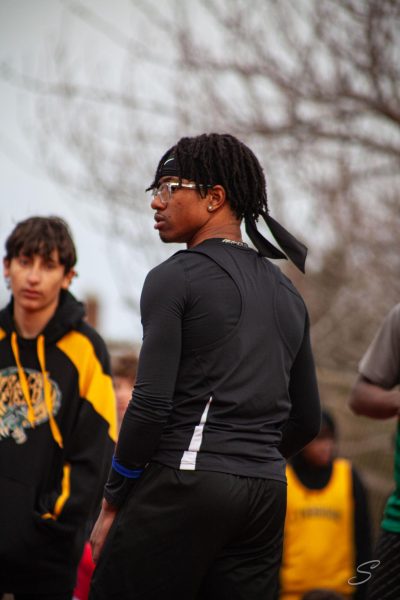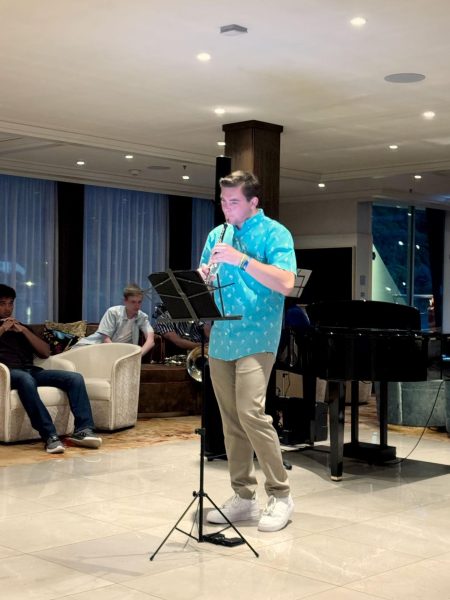The Forgotten Children in the Heart of Asia
I have always loved to work around children. I’ve often volunteered at the Lynbrook Summer Playground program and babysat for friends and family. But never had the thought of traveling halfway across the world to help children in need ever crossed my mind. When I first heard of this trip, I was not sure that it was something I was meant to do. I mean, traveling all the way to Kyrgyzstan, a country I had never heard of, to volunteer at poverty-stricken orphanages? It was way out of my comfort zone and would be a totally unique experience for me. But the more I thought about the trip, I realized that I was being called to do this, and that it was not about me, but about the kids whom I would be helping. I decided to go, and little did I know, it would be one of the smartest choices I would ever make.
My mom and I left for the airport with our good friends and travel companions, Heather and Rina, around midnight on August 3. After bidding farewell to our families, we settled in and prepared ourselves mentally for the trip we were about to embark on. Our journey to Kyrgyzstan consisted of two flights, a ten-hour flight to Istanbul with a four-hour connection, and a five-hour flight through to Bishkek, the capital of Kyrgyzstan (with the reverse on the way home). We met the rest of our team in Istanbul (Joe, Lisa, Jen, Jenny, Tekoa, Serena, Sierra, Bella, Anne, Nicole, and Ashley) who joined us from Ventura and Santa Paula, California. When we arrived at the airport in Kyrgyzstan, we met our driver who took us to our hotel, which lucky for me, had WiFi.
After traveling for twenty-three straight hours and getting practically no sleep on either of the two flights, we felt that the first thing we should do in Kyrgyzstan is take a nap. We later met for a team meeting in Heather’s room, and then met with Galia, our guide for the trip, who brought her adorable 10-month-old daughter named Setie. She gave us a tour of Bishkek, showing us all of the Parliament buildings, monuments of the revolution, a statue of a local legend, and several parks. That night we tried national dishes at a restaurant called Navat. We ate lagman, a meal consisting of beef, noodles, and peppers, and national bread, which was basically fried dough. The national food in Kyrgyzstan was incredible, much better than any of us could have imagined.
On the second day, we continued to explore the beauty of the country. We went hiking in the mountains at Ala-Archa National Park. We saw snow-covered mountains, flowing streams, and beautiful waterfalls. One of the most interesting sights we saw that day, however, was not found at the park, but a man casually walking a herd of goats around Bishkek. According to Galia, he picks them up every morning from their houses and walks them home at night. That night, we prepared to visit our first orphanage, located in Belovodsk. We packed all sorts of toys and games for the kids, hoping that they would engage with everything we brought.
Before arriving at the orphanage, we stopped at a watermelon stand and purchased nineteen melons for twenty-five US dollars, which like everything in Kyrgyzstan, was really cheap. The facility was agreeably much nicer than we had expected and quite large. There were three rooms with children of varying ages in each one. Most of the kids in the orphanage were between the ages of three and seven. My mother, Bella, Rina, and I were placed in the room with the mid-aged children. It was at this orphanage that I first noticed a certain level of social gender inequality in Kyrgyzstan. At one point in the visit, one of the nannies pointed at me specifically to carry one of the boys to a medical room, as I was the only male among us. We all gathered on the mat with the kids and played with balls and other toys that we had brought with us. There was one rather heavy-set Russian-looking nanny who kept yelling at the kids in a deep, admittedly frightening voice. Every time she spoke, we all turned around suddenly hoping that she was not yelling at us. Luckily, this was never the case, but she seemed to demand a certain level of control over the room. We had to leave the orphanage around noon because the children were soon going down for a nap.
We spent the remainder of the day running errands and experiencing city life. I noticed that the culture in Bishkek had aspects of Asian traditions, but also Western/American touches. For dinner, we decided to try Turkish food, which consisted mainly of lamb dishes. Our dessert was a dish made of pistachio and honey with a side of Turkish tea, something I had never seen before, but was surprisingly tasty.
The next morning, we left bright and early to visit another orphanage, this one located in Kant. Upon arrival, we toured the school facility and looked at the beautiful sewing crafts made by the kids, and some of us even bought a few. Many of the crafts were pillows, tea covers, stuffed animals, and aprons. Then we met the kids, who were getting ready to eat the melons that we had brought for them. They were older than the kids at the first orphanage, and two girls here spoke English well, so communication was somewhat easier than at the previous orphanage. After the kids ate, we all gathered in a gym and colored, ran around, and played with bubbles. The kids ate lunch, which consisted of just a biscuit, candy, bread, and a small cup of apple juice.
On our sixth day, we went to a special needs orphanage in Belovodsk. We started off by playing outside with a handful of kids. We learned that there were about 120 total children with varying degrees of special needs, and that the kids we were with had less critical needs. I played ball and drew in the sand with one adorable little girl who had Down’s syndrome, and then I played ball with an older girl in a wheelchair and a little girl who was absolutely baffled by my iPhone.
At one point after we took the kids inside for their lunch, we ended up waiting in front of the orphanage just talking. That is when Joe and Tekoa saw us and took me to a tent where I met Oskar, a 16-year-old boy with a rare bone disorder that left nearly every bone in his body brittle. He spoke English, Russian, and the native language, Kyrgyz. He told me that he is a huge fan of WWE wrestling, which he streams from a laptop that was donated to him for his birthday along with a PlayStation 3. He asked me if I wanted to play against him in WWE Raw vs Smackdown 2011, to which I enthusiastically agreed. The last thing that I had expected to do on this trip was play video games, so I was happy to do so with one of the kids. I played as The Undertaker, and he played as John Cena. As we played, he told me his favorite wrestlers were John Cena, Undertaker, Brock Lesnar, The Big Show, Bron Stroman, and Roman Reigns. I told him that when I was little, I used to watch WWE religiously, and that I even went to WrestleMania in 2013, which he was very impressed by. He also told me all about his favorite matches that he has seen. It was an incredibly humbling moment to see that we really are very alike. He is such a strong kid with a generous heart who, despite his condition, makes the most of every moment.
We moved on to a tent where we helped feed some of the children who were bedridden due to various health conditions. This part of the trip was the hardest for many of us. These children could not even sit up, let alone walk, talk, or feed themselves. That night, we decided to cheer ourselves up with some American food at the Metro Café. This restaurant sold American-style food and interior decorations were very American, much like what one would see at Friday’s or Applebee’s. It had pizza, hamburgers, tacos, pasta, beer, and more. The food was not as favorable as authentic American cuisine, but it was nice to have some food that reminded us of home on this tough day.
Our seventh day in Kyrgyzstan was a non-orphanage day, so we visited the Osh market. Osh market is an outdoor market in Bishkek where people can sell their goods to pedestrians. The area is very large and has many twists and turns, with people selling all kinds of goods, from Kyrgyzstani souvenirs, to practical appliances like microwaves and pots and pans. We spent a few hours shopping in a small part of the complex. I purchased an authentic Russian nesting doll and a wooden whistle shaped like a shell. When we got back, we had a meeting to go over some of the medical assessments from the first three orphanages. Bella, Rina, and I discussed several topics relating to the mission thus far and made a list of things to know for travelers on future missions to Kyrgyzstan. Then we talked about specific children who needed special medical care and made a note of everything we discussed.
On the eighth day, we started off by delivering some supplies to the Kant orphanage on the way to the Tokmok Baby House, a day that I had circled on my calendar since the beginning of the trip. We arrived and went straight to an outdoor play area with about 15 kids around the ages of 2-4. We started off playing with a little pool that was half filled, but the kids kept throwing the balls that we brought into the pool, which made the nannies angry. Other than this, the nannies were very playful and loving toward the kids, more so than any other orphanage we had been to. After playing, we helped them wash their feet and then went in for lunch. The kids danced to some songs, and then the nannies asked us to leave so they could feed the kids.
After we left, Galia took us to visit Burana Tower, a monument tower built in the tenth century. Those who were daring enough to climb up to the top did so through a narrow and steep tunnel that was poorly lit, but the view of at the top was well worth the dangerous climb. When we returned to the hotel, we decided to order pizza to the hotel instead of going out and eating. The pizza was surprisingly good (nothing compared to New York pizza, though).
Before we knew it, our last day in Kyrgyzstan had arrived. The orphanage that we visited on the last day was different than all of the others we had seen previously. This one was run by a sweet couple from Oklahoma who have lived in Kyrgyzstan for over twenty years. Allen and Cheryl started by giving us a tour of the orphanage, which was much smaller than any of the orphanages we had been to before, as it was privately run. They showed us the girls’ cabin and dining hall, then took us to a building next door where they kept the boys’ cabin and classroom, where they teach English lessons.
Then we returned to the hall and played all kinds of board and card games. Joe, Sierra, and I played “The Game of Life” with a teenage boy named Nikita and a teenage girl named Katerina. Then I played “Spit” with two girls, named Nara and Katerina, and a boy named L.T. They were admittedly much better than I was, and I am ashamed to say I lost nearly every game. Allen and Cheryl generously ordered pizza for all of us, and I talked with L.T., Katerina, and a girl named Ayesha about life in Kyrgyzstan. They told me that they go to private school and that they want to study at university when they get older. After we ate, we went outside to the courtyard and played basketball and volleyball. They knew little about American life, so I told them about American basketball players like LeBron James and Michael Jordan.
Before we left, we all took a group picture and said our goodbyes. It was by far the best experience we had at an orphanage; the kids had a great relationship with Allen and Cheryl, and they even called them Mom and Dad. They often take them on trips to Lake Issyk-Kul and teach them English lessons, as well as lessons on manners. I fell in love with this orphanage, and one day I wish to return and visit with everyone there. The people I met inspired me and gave me hope that despite the situations that they are faced with, they all come together as a family and live by one another.
We each left a piece of our hearts back in Kyrgyzstan with those children, and it is an experience that has changed all of us. While I was glad to be home and with my family again, a part of me missed Bishkek and all the amazing people I had met. If there is one thing that I have learned from this trip that I could pass on to others, it would be to appreciate the life that you live, and never take it for granted. Be happy that your worst problems might be your grades or fights with your family because it could be so much worse. Feel fortunate that you have a family that loves and supports you and everything you do. Be grateful that you have the physical ability to do even simple tasks in life, like walking, talking, and writing. Never take these aspects of your life for granted, and remember to appreciate all the amazing things that you have been blessed with in life.




